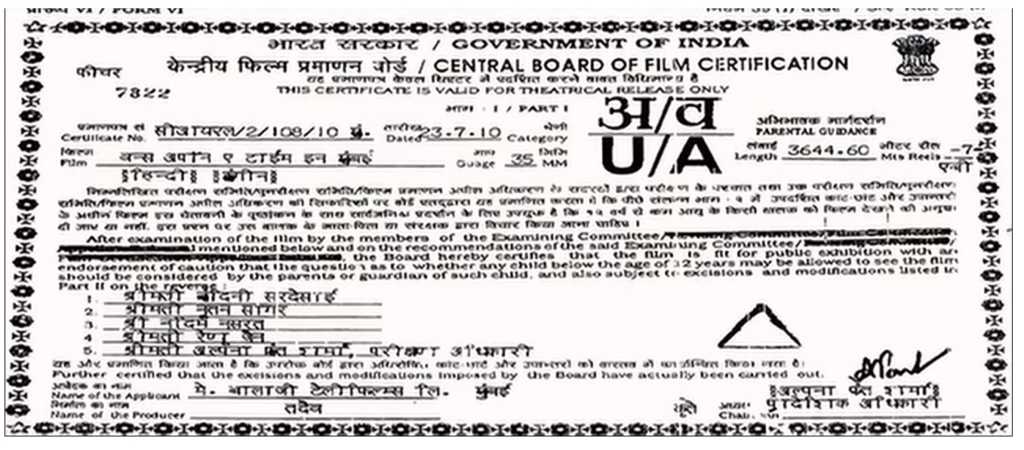The author’s first memory of Indian censorship goes back to the year 2006. As an undergrad student he bunked his lectures and ended up at the cinema at 10 AM to catch a show of the DiCaprio starrer The Departed. While the movie had all the trademarks of a classic Scorsese-DiCaprio collaboration, a lot of things appeared bizarre in the film. For one, there were a lot of muted dialogues, and some scene transitions were plain weird. It was clear that some busybody in the CBFC had hacked the movie to bits.
India has had a glorious tradition with censorship and it has only been exacerbated in recent times. While this is a quality that is not exclusive to the BJP, the Pahlaj Nihalani led censor board has taken it to ridiculous levels which at most times makes little sense. It doesn’t help the CBFC’s cause that they are led by a person whose film-making credentials are dubious to say the least (‘Khada hai, khada hai’ anyone), but also that any attempt at even legitimate actions automatically translates into a narrative of right-wing oppression on freedom of expression. Case in point is the U/A certification for Jungle Book which was ridiculed by many to be excessive for an ostensible kids movie, never mind the fact that countries such as Netherlands (12+), New Zealand (PG), Phillipines (PG-13), Portugal (12+), South Korea (12), Sweden (11), South Africa (10+) , UK (PG), and the USA (PG) all gave ratings which were higher than what is normally given for a film of its kind. The Govt. took the right step by initiating the Shyam Benegal led committee to revamp the CBFC whose partial recommendations were submitted a few weeks back, but barely made any noise even on social media. While the final report will be submitted on the 20th of June, most of its key recommendations are already available, sans the details.
Stick to film certification, not censorship:
The CBFC despite its nomenclature still clings onto the idea of snipping scenes when it’s job is to only firm certification, not censorship(except under egregious circumstances). This is the biggest observation of the Benegal committee and a welcome one. A three-tier system for classification is also somewhat inadequate given the melding of tones and content that is observed nowadays, and hence it has suggested a system which is more in line with other certification agencies such as the MPAA. As it stands, a movie like Jungle Book and Batman v Superman end up with the same rating, when any sensible person will conclude that the latter is definitely slightly mature, albeit not to the extent of the expletive-ridden (yet awesome) Deadpool.
Defining the governing board’s boundaries:
The Benegal committee also calls for a clear definition of the governing board’s duties, i.e. a call for it to be a mere guiding body and defining the broad rules and not be involved in the day-to-day certification of films. As it stands now, the Nihalani led board finds itself in the dubious position of not only defining the rules, but also time and again finds itself implementing these rules, and also interfering in the appellate process if the producers are not happy with the final results. This is a ridiculous setup which does not result in adequate checks and balances and leads only to an acrimonious relationship with the content providers. The Benegal committee recommendation fixes these flaws within the system and substantially clips the wings of Pahlaj Nihalani who is the biggest villain of the piece as it stands now.
A balanced regional advisory panel:
Given the diversity of India, which is reflected in its content, it makes little sense to have the same standards of judging media, hence the requirement to revamp the regional advisory panel. The committee has called for a sensible composition of the panel based on their credibility in the craft, with a 50% reservation for women. The latter is a welcome one, especially given that in recent times movies like Mastizaade which are clearly guilty of objectifying women in the most crude manner are allowed a pass, but a kiss in a Bond film is considered objectionable. In the CBFC’s defense, this is not unique to the current board but has been going on for decades, only that Pahlaj Nihalani has taken it to asinine levels.
The I&B ministry has taken the first basic steps in addressing the Censorship issues with the CBFC by setting up the Benegal committee, and now it has to implement its recommendations in full. On a related note, it is high time the PM relieves the portfolio off the busy Arun Jaitley to ensure the ministry functions in a more efficient manner. Promoting Rajyavardhan Rathore to cabinet rank would be a step in the right direction and encourage a young politician and also empower him to walk the talk.
